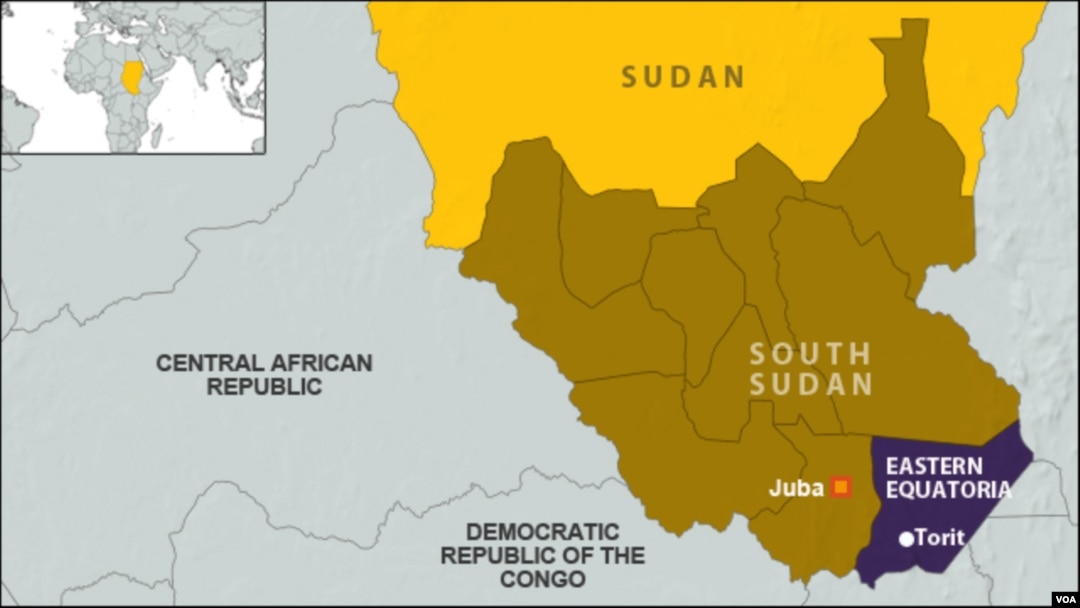TORIT —
Officials in South Sudan's Eastern Equatoria state are concerned that they might lose one of the country's treasures if people continue to cut down trees in the state's 14 forest reserves.
But residents. like Ohide Pios, insist they have no choice but to continue with the illegal activity. The wood, which Pios turns into charcoal or uses to build shelter for his family, is his only means of making a living, he said.
"I normally cut dry trees around the forest and I burn charcoal out of it," Pios, who is unemployed and has four children to support, told VOA News.
"This is my only source of money," he said.
Ochan John Bongomin, Eastern Equatoria's Forestry Minister, noted that it is illegal to cut down trees in the forest reserves without registering with the authorities.
Without that rule in place, he said, deforestation would likely be extensive, and that would affect the state’s rain patterns and make flooding worse. Eastern Equatoria could also run out of rare tree types, such as mahogany, he said.
Bongomin said there are only 42 forest guards and they are not able to patrol and prevent illegal logging on thousands of acres of forest.
"You find that people go there in big numbers. Unfortunately, also, currently most of these loggers who go to cut these trees, they have guns, so sometimes they frighten our forest guards," he said.
State officials are also trying to combat the problem by educating communities about which trees they can cut down without damaging the forests' balance.
"We cannot stop them from building using local materials, but they should be selective when they are cutting the trees," Bongomin said.
"There are many trees around which can be cut for building, but the young ones which are not yet ripened should be allowed to ripen,” he said.
Deputy Forestry Director Daniel Alau said steps are also being taken to plant saplings in affected reserves.
Forestry officials will plant thousands of saplings in Imilai in January and, if the effort is a success, they will duplicate the effort in other reserves like Kalishoni forest in Magwi county, where the Forestry Ministry estimates that at least two percent of the forest's 1,000 acres have been cut down in the last year alone.
But residents. like Ohide Pios, insist they have no choice but to continue with the illegal activity. The wood, which Pios turns into charcoal or uses to build shelter for his family, is his only means of making a living, he said.
"I normally cut dry trees around the forest and I burn charcoal out of it," Pios, who is unemployed and has four children to support, told VOA News.
"This is my only source of money," he said.
Ochan John Bongomin, Eastern Equatoria's Forestry Minister, noted that it is illegal to cut down trees in the forest reserves without registering with the authorities.
Without that rule in place, he said, deforestation would likely be extensive, and that would affect the state’s rain patterns and make flooding worse. Eastern Equatoria could also run out of rare tree types, such as mahogany, he said.
Bongomin said there are only 42 forest guards and they are not able to patrol and prevent illegal logging on thousands of acres of forest.
"You find that people go there in big numbers. Unfortunately, also, currently most of these loggers who go to cut these trees, they have guns, so sometimes they frighten our forest guards," he said.
State officials are also trying to combat the problem by educating communities about which trees they can cut down without damaging the forests' balance.
"We cannot stop them from building using local materials, but they should be selective when they are cutting the trees," Bongomin said.
"There are many trees around which can be cut for building, but the young ones which are not yet ripened should be allowed to ripen,” he said.
Deputy Forestry Director Daniel Alau said steps are also being taken to plant saplings in affected reserves.
Forestry officials will plant thousands of saplings in Imilai in January and, if the effort is a success, they will duplicate the effort in other reserves like Kalishoni forest in Magwi county, where the Forestry Ministry estimates that at least two percent of the forest's 1,000 acres have been cut down in the last year alone.



